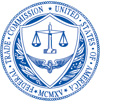Paying a Premium for High Octane Gasoline?
Unless it’s recommended by your owner’s manual, don’t spend the money on high octane gas. In most cases, there’s no benefit. Higher octane helps only if you have problems with your engine “knocking.”
Read Your Owner’s Manual
Unless your engine is knocking, buying higher octane gasoline is a waste of money. Premium gas costs 15 to 20 cents per gallon more than regular. That can add up to $100 or more a year in extra costs. Studies indicate that altogether, drivers may be spending hundreds of millions of dollars each year for higher octane gas than they need.
It may seem like buying higher octane “premium” gas is like giving your car a treat, or boosting its performance. But take note: the recommended gasoline for most cars is regular octane. In fact, in most cases, using a higher octane gasoline than your owner's manual recommends offers absolutely no benefit. It won't make your car perform better, go faster, get better mileage, or run cleaner. Your best bet: listen to your owner's manual.
The only time you might need to switch to a higher octane level is if your car engine knocks when you use the recommended fuel. This happens to a small percentage of cars.
About Octane Ratings
What are octane ratings?
Octane ratings measure a gasoline's ability to resist engine knock — a rattling or pinging sound that results from premature ignition of the compressed fuel-air mixture in one or more cylinders. Most gas stations offer three octane grades: regular (usually 87 octane), mid-grade (usually 89 octane), and premium (usually 92 or 93). The ratings are posted on bright yellow stickers on each gas pump.
What's the right octane level for your car?
Check your owner's manual. Regular octane is recommended for most cars. However, some cars with high compression engines, like sports cars and certain luxury cars, need mid-grade or premium gasoline to prevent knocking.
How can you tell if you're using the right octane level? Listen to your car's engine. If it doesn't knock when you use the recommended octane, you're using the right grade of gasoline.
Will higher octane gasoline clean your engine better?
No, as a rule, high octane gasoline doesn’t outperform regular octane in preventing engine deposits from forming, in removing them, or in cleaning your car's engine. In fact, the U.S. Environmental Protection Agency requires that all octane grades of all brands of gasoline contain engine cleaning detergent additives to protect against the build-up of harmful levels of engine deposits during the expected life of your car.
Should you ever switch to a higher octane gasoline?
A few car engines may knock or ping even if you use the recommended octane. If this happens, try switching to the next highest octane grade. In many cases, switching to the mid-grade or premium-grade gasoline will eliminate the knock. If the knocking or pinging continues after one or two fill-ups, you may need a tune-up or some other repair. After that work is done, go back to the lowest octane grade at which your engine runs without knocking.
Will knocking harm my engine?
Occasional light knocking or pinging won't harm your engine, and doesn't mean you need a higher octane. But a heavy or persistent knock can lead to engine damage.
Is all "premium" or "regular" gasoline the same?
The octane rating of gas labeled "premium" or "regular" isn’t the same across the country. One state may require a minimum octane rating of 92 for all premium gasoline, while another may allow 90 octane to be called premium. To make sure you know what you're buying, check the octane rating on the yellow sticker on the gas pump.
Report Labeling Problems
If you don't see a yellow octane sticker on a gasoline pump, file a complaint with the FTC. The FTC enforces the Fuel Rating Rule, designed to ensure producers and marketers give you the information you need at the pump.


